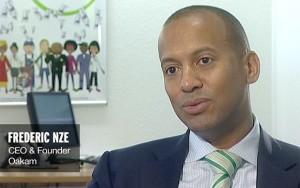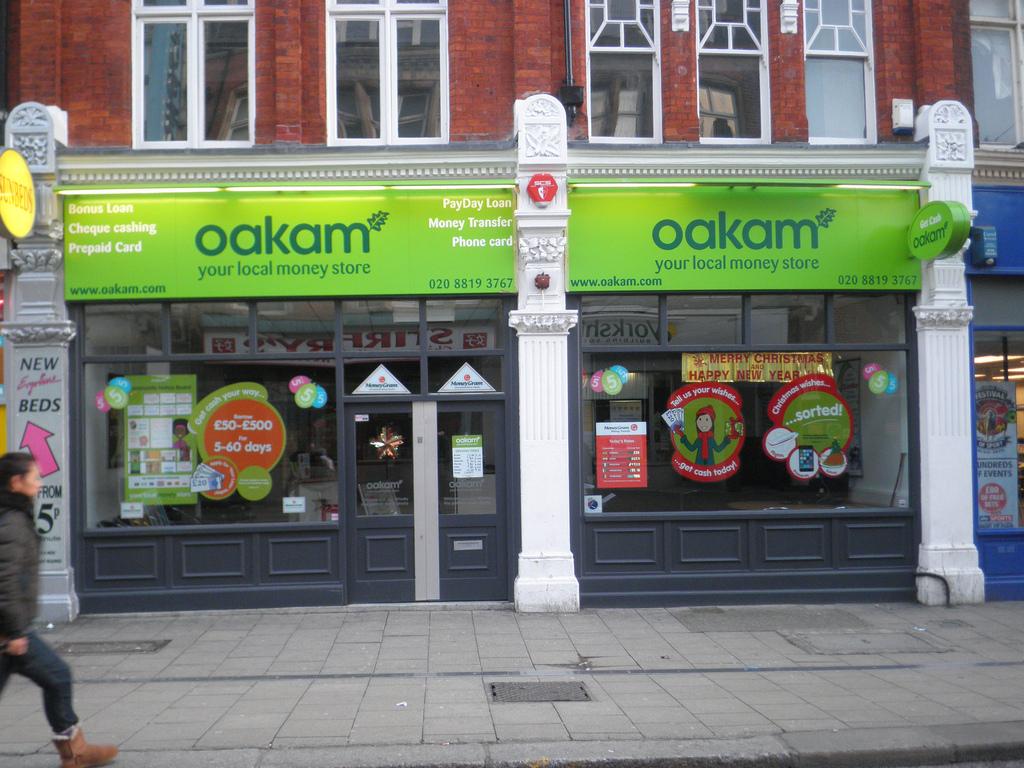According to figures from Kantar Media, three million adults across the nation do not have a bank account. These adults are excluded from taking out loans and mortgages and do not have the opportunity to save. The World Bank Group President Jim Yong Kim has said that access to financial services is “a bridge out of poverty”; so why isn’t more being done about it?
For the CEO of high street lender Oakam, Frederic Nze, there is huge gap in the market for an ethical microfinance company to meet the needs of these people. At the moment, the problem is not being met responsibly; pay day loan companies are now well-known for taking advantage of those in need and luring them into debt. Many of the unbanked population are migrants, moving here to work but without a credit rating, they have no access to traditional financial institutions. Born in the Congo and working in the UK, France and the US, Nze has a unique insight into the migrant community, and the problems they can face from a financial perspective.
In 2001, Nze began working at Barclays, where the scale of the problem was first noticed. Barclays asked Nze to develop a 12 month trial programme to get those without bank accounts or a credit rating into mainstream banking. Whilst there was a considerable demand from customers, Barclays felt that they didn’t have the resources to deal with those who were not financially literate and unfortunately, the programme failed; ultimately, it didn’t fit their corporate image. Seeing the potential and obvious need to help those without the resources to open a bank account, Nze left Barclays to set up the venture on his own; and so, Oakam was born.
At first sight, Oakam looks remarkably like the many other payday loan companies you see advertised here, there and everywhere. However, Nze maintains that, ultimately, Oakam has a very different concept.
Firstly, the customer base is different. Rather than catering to those who have previously had a credit rating and have lost it due to poor management or the financial crisis, Oakam offers loans to those who have never had a rating, or any debt. His aim is to help people get into mainstream banking, often migrants who have recently moved here to work and want to establish themselves and their business, but are not given the opportunity to take out loans with mainstream banks.
Secondly, and most importantly, Nze’s business is built on relationships. Most pay day loans have no relationship between lender and borrower – all it takes is a simple form on the internet and the money appears in your account, as if by magic. However with Oakam, building relationships is key. The company has a prominent presence on high streets in London and the Midlands, meaning that in order to take out a loan customers have to meet with an advisor who will assess ability to repay. Oakam aim to retain their customers, offering a cheaper rate every time they borrow.

The most obvious difference between Oakam and other pay day ‘loan sharks’ is the cost of their service. Lending to the unbanked is not without risk; which is reflected in Oakam’s interest rates which, at 1424% APR, are actually higher than a lot of other pay day loan companies. However, Oakam charge no fees for missing a payment – most companies will charge £20 – and no cumulative interest. The amount you borrow, plus interest, is set out at the beginning with no hidden charges or costs.
Oakam have recently recruited several people from high profile banks and institutions to drive the company into its next phase: moving online. Whilst I questioned the motive when their stores are what creates such a personal relationship with customers, Nze was adamant that it is the right move for the company.
“Firstly, it is cheaper cost of service. With fewer over heads, we can make the whole process cheaper and pass these savings onto our customers.
“Another reason is improving accessibility. The type of customers we cater to can be put off by going into a store, for fear of being declined. Not only does an online system make it more accessible for those people, but more people can benefit in a shorter time; it would take four years of opening stores to be national – however, could do it in 6 months with online.”
Like many other Fintech firms Nze saw London as the best choice for starting his company, and feels strongly about London’s reputation as a centre for Fintech innovation.
“One of the reasons why I set the company up here is that within 15 minutes you can raise money or recruit the best people. There is a real eco-system that makes business ideas possible here.”
Whilst Nze is reluctant to comment on the controversy that other pay day loans create, it is obvious he disagrees with their principle. Whilst there was a gap in the market for a those companies a few years back, he believes that people have wised up to their offers and they may not be around for much longer; and for Oakam and the unbanked population, this can only be a good thing. Three billion adults without access to savings accounts, loans and other financial help is three billion too many, and more needs to be done; and companies like Oakam, who promote responsible lending and sustainable microfinancing, could well be a good place to start.
Miranda Wadham on 19/08/2015




